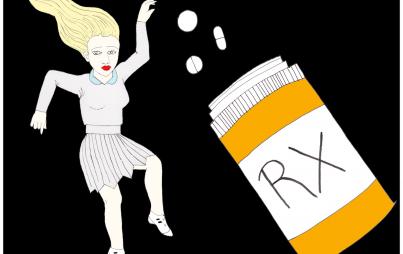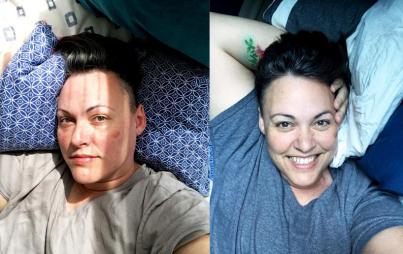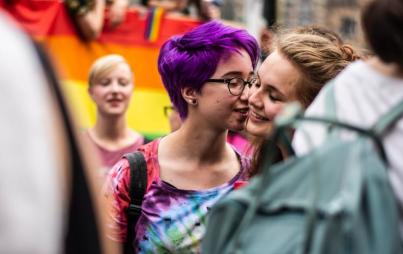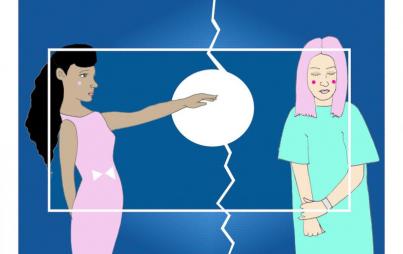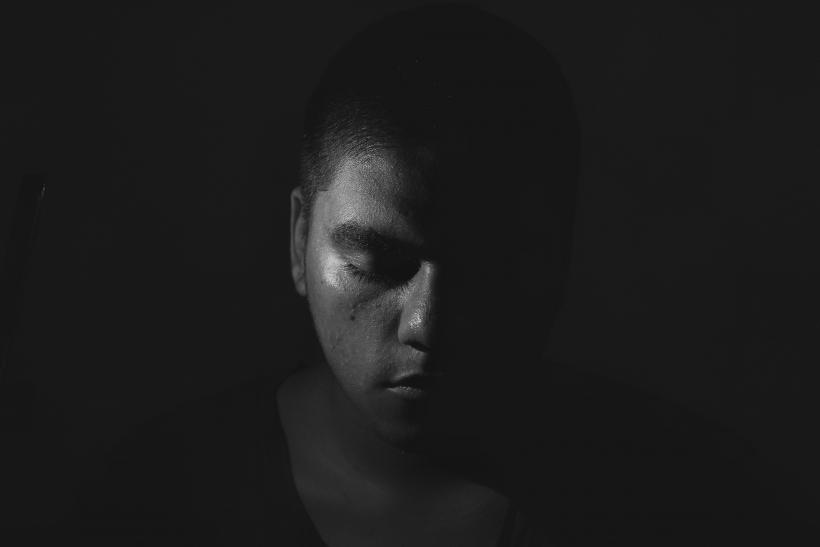
Photo by Benjamín Castillo on Unsplash
CN: suicidal behavior
Alcohol was the antidepressant I felt I always wanted. There was no need to step back, breathe, count to ten, or do any of the other self-soothing techniques I picked up from 17 years worth of therapy. All I had to do was fill up my 12 oz. tumbler to the brim with bourbon, and I was set.
All the pain, anguish, fear, anxiety, anger, shame, and sensory overload just disappeared in a fog of inebriation. I didn’t care about any possible permanent liver damage or adverse reactions to my psychiatric medication; all I cared about was getting drunk every night. My therapist kept bringing up my drinking during our sessions together, but I didn’t want to talk about it. I finally found something that was working for me. Why screw up a good thing, right?
Unfortunately alcohol was starting to affect my life negatively.
I recorded episodes of my podcast drunk. I had trouble sleeping. I even switched from binge drinking just at night to binge drinking all day.
I knew I had to stop, so I started going to a weekly local SMART Recovery support group in December. Unlike Alcoholics Anonymous, SMART Recovery uses cognitive behavioral therapy techniques instead of a list of 12 steps and does not require belief in a higher power. At first, everything was going well; they were teaching me how to confront the negative thoughts and irrational beliefs that led me to drink. A few weeks ago, however, I got tired of staying sober and tried to drink myself to death.
I survived, but the experience scared me so much that I knew I had to make some major changes to myself, which included confronting the minority stress I face as a queer trans person.
According to the Substance Abuse and Mental Health Services Administration (SAMHA), 25% of LGBTQ people struggle with alcoholism, compared to only 5-10% of cis straight people. One of the main reasons for this is because of minority stress, which the Center for American Progress defines as “the negative effects associated with the adverse social conditions experienced by individuals of a marginalized social group.” Such adverse social conditions include housing discrimination, job discrimination, strained family relationships, bullying, and the ongoing threat of violence committed against us. I’m lucky never to have faced any housing or job discrimination, and my family has been nothing but supportive. However, I know the latter two all too well.
You Might Also Like: My Story of Alcoholism, And The Hell It Took To Become Aware
All my classmates must have figured out I was queer and trans before I did because not a day went by without someone calling me either a homophobic or transphobic slur. This went on every day from first grade to high school graduation. There was never a moment where they didn’t remind me that I was the perpetual outsider, and there would never be a place in the world for me.
Even today, seventeen years after graduation, I still carry this idea with me everywhere I go. It doesn’t matter that I found family among a ragtag group of fellow atheist podcasters that reached out to me a few weeks ago when I almost drank myself to death.
The voices of the bullies still echo in my head, reminding me that no one will love me.
As far as threats of violence, I’ve been lucky so far, but that doesn’t mean I always will be. There was one incident a few years ago when I was making out with my then-boyfriend in my car in a parking lot. A few parking spots away, there was a man in a truck who looked like he was staring right at us. I tried to ignore him and focus on my boyfriend, but I couldn’t help but think, “This is it. This is the moment where I end up hanging dead on a fence simply because of who I love.” Fortunately, another man got into the truck, and they both drove away without any incident.
Weird stares in public are the only thing I’ve experienced so far, thankfully, but since hate groups have grown since Donald Trump’s election, I worry that one day it’ll go beyond stares. Maryland’s Eastern Shore region, where I live, generally has a “Don’t ask, don’t tell” policy when it comes to LGBTQ people; they’re okay with it as long as we don’t “shove it down their throats.” But what if one day someone decides they’ve had enough of being nice, and decide to take out all their hatred on me as soon as they see my painted nails and eyeshadow?
I’m unaware of any official statistics about how common this is, but another source of my minority stress is constantly feeling like I have to be the official queer trans diplomat of the Internet. Normally I like educating people about LGBTQ issues, which is why I’m a writer. However, sometimes I get tired of answering the same questions over and over again. I’m tired of constantly trying to prove my non-binary identity to Twitter trolls. I’m tired of trying to “fight bad speech with better speech” on social media, providing countless peer-reviewed articles showing how systematic oppression still exists in modern society only to be met with, “LOL, triggered!”
As Audre Lorde once said, when marginalized people are expected to educate those with privilege all the time, it creates “a constant drain of energy which might be better used in redefining ourselves and devising realistic scenarios for altering the present and constructing the future.”
This is usually the part where I write something inspirational about how I overcame my obstacles, and everything’s okay now, but that’s not how addiction recovery works. It is a one day at a time process full of progress and setbacks, highs and lows, strength and weakness. I think I’m on the right track, though. One thing that SMART Recovery talks about is unconditional self-acceptance, which is the idea that I have worth just as I am. This is one of my primary goals: to be unapologetically queer and trans in the face of opposition and to find healthy ways of coping with minority stress. Whatever it takes me to not try to drink myself to death again.



